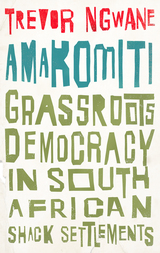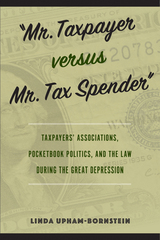

In Chicago’s Block Clubs, Amanda I. Seligman uncovers the history of the block club in Chicago—from its origins in the Urban League in the early 1900s through to the Chicago Police Department’s twenty-first-century community policing program. Recognizing that many neighborhood problems are too big for one resident to handle—but too small for the city to keep up with—city residents have for more than a century created clubs to establish and maintain their neighborhood’s particular social dynamics, quality of life, and appearance. Omnipresent yet evanescent, block clubs are sometimes the major outlets for community organizing in the city—especially in neighborhoods otherwise lacking in political strength and clout. Drawing on the stories of hundreds of these groups from across the city, Seligman vividly illustrates what neighbors can—and cannot—accomplish when they work together.

The United States is a nation of joiners. Ever since Alexis de Tocqueville published his observations in Democracy in America, Americans have recognized the distinctiveness of their voluntary tradition. In a work of political, legal, social, and intellectual history, focusing on the grassroots actions of ordinary people, Neem traces the origins of this venerable tradition to the vexed beginnings of American democracy in Massachusetts.
Neem explores the multiple conflicts that produced a vibrant pluralistic civil society following the American Revolution. The result was an astounding release of civic energy as ordinary people, long denied a voice in public debates, organized to advocate temperance, to protect the Sabbath, and to abolish slavery; elite Americans formed private institutions to promote education and their stewardship of culture and knowledge. But skeptics remained. Followers of Jefferson and Jackson worried that the new civil society would allow the organized few to trump the will of the unorganized majority. When Tocqueville returned to France, the relationship between American democracy and its new civil society was far from settled.
The story Neem tells is more pertinent than ever—for Americans concerned about their own civil society, and for those seeking to build civil societies in emerging democracies around the world.

“Mr. Taxpayer versus Mr. Tax Spender” presents a comprehensive overview of these grassroots taxpayers’ leagues beginning in the 1860s and shows how they evolved during their heyday in the 1930s. Linda Upham-Bornstein chronicles the ways these taxpayers associations organized as well as the tools they used—constructive economy, political efforts, tax strikes, and tax revolt through litigation—to achieve their objectives.
Taxpayer activity was a direct consequence of—and a response to—the economic crisis of the Great Depression and the expansion of the size and scope of government. “Mr. Taxpayer versus Mr. Tax Spender” connects collective tax resistance in the 1930s to the populist tradition in American politics and to other broad impulses in American political and legal history.
READERS
Browse our collection.
PUBLISHERS
See BiblioVault's publisher services.
STUDENT SERVICES
Files for college accessibility offices.
UChicago Accessibility Resources
home | accessibility | search | about | contact us
BiblioVault ® 2001 - 2024
The University of Chicago Press









